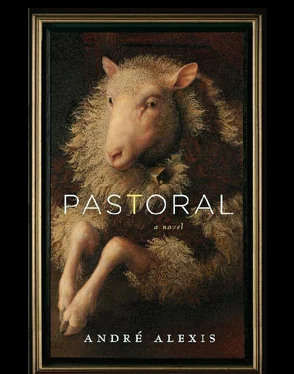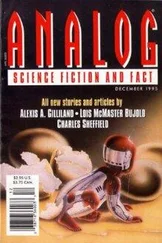Tomasine’s funeral took place of an afternoon. Light came through the stained-glass portraits of Zenobius and Zeno. The church smelled of the floral perfume one of the mourners wore. Mass was said into the silence of late afternoon in a small town, most of whose inhabitants worked elsewhere. When the service was over, Father Pennant walked from the church with three old women, one of whom matter-of-factly said
— Poor Tomasine. She had a soft spot for priests, you know.
— I thought we were a disappointment to her, said Father Pennant.
— Oh, not at all, said the old woman. Father Fowler was the only man she ever loved. Do you know what ‘carrying a torch’ means, young man? Well, she carried a torch for that man, poor dear.
—Did Father Fowler know?
— Of course he knew. He loved her too. He joined the priesthood after she married Bill Humble.
— I don’t understand, said Father Pennant. Why did she marry Mr. Humble if she loved Father Fowler?
— We’ll never know, said the old woman. They were quite strange, those two.
Startled by sunlight as they left the church, the old woman gripped Father Pennant’s arm and went carefully down the steps, all thought of Tomasine and Father Fowler gone as she tried to keep herself from falling. Her companions held on to the railings and cautiously stepped down, as if stepping into uncertain waters.
At the end of the day, after Tomasine had been buried, Father Pennant asked Lowther what he knew about Mrs. Humble and Father Fowler.
— Nothing, answered Lowther.
— Did they love each other?
— I really don’t think so, Father. In all the years I worked for him, I never heard Father Fowler mention her more than a handful of times.
— Well, Tomasine’s friends were convinced …
— I think Tomasine was convinced too. But she was an odd woman. No offence to the dead. She never had a kind word for Father Fowler.
— You know, I’m not sure she had a kind word for you either.
— Yes, I know. But she’s not alone there. Not many people trust me.
— I’m very sorry to hear it.
— No, no. They’re right. I haven’t always been the best of men.
It wasn’t clear to Father Pennant what type of man Lowther wished to be or what type of man Lowther would have called ‘good.’ Lowther’s dislike for his own younger self seemed to be the point. He had been born in Petrolia in 1949, his parents’ only child. His father, a bitter and angry man, died when Lowther was twelve. After that, Lowther had become the man of the house, spoiled by a mother who doted on him. By the time he was fourteen, he was, he said, good for nothing. He lied, stole, drank and did things of which he was now deeply ashamed.
He would almost certainly have lost his soul, but that he was intelligent and sensitive despite himself. The cruel things he did began to seem tiresome, mindless and insignificant. So, at twenty, he moved to Sarnia and, for no particular reason save that he saw a help-wanted ad in the Observer , found work as a private investigator. His work as an investigator was what earned him his bad reputation. He was good — that is, ruthless — at the work’s many stations: skip tracing, process serving, testing the fidelity of husbands and wives. For years, he did very well. He earned all the money he wanted until, one day, he abandoned that road as well. Why? There were, it seemed, a number of reasons. Among them was that Lowther could not be certain he was not adding to the misery of the world. He pitied the men and women who couldn’t pay for their cars or who lacked the discipline to be faithful to their spouses. They were, he thought, versions of himself. So, in a moment of contrition, he quit his job and deliberately chose to do the things that, at the time, appealed to him least. He moved to Barrow and began to work for St. Mary’s. He taught himself to live on next to nothing, and he gave himself completely to menial work.
The first years of his life in Barrow were almost unbearably tedious. He maintained the church’s Volkswagen and cooked for Father Fowler. He did the same things, day in and day out. He forced himself to do them without complaint, though the insignificance of his new life ate away at his self-esteem. He began to think that no man who respected himself would settle for the life he had chosen.
And then the moment came without warning: he learned to surrender. It was early spring, a year before Father Pennant’s arrival. Lowther had walked out of town in the direction of the Queen. The sun was up. There was a cold wind. And he was at peace with himself. That’s all and that was it: nothing sacred, nothing grand or earth-shattering, nothing that could be shared or passed on. A cold wind. A blue sky. But from that day on, his tasks became fascinating to him. The way one washed or wiped dishes, the way one swept a floor or drove a car: all these duties seemed human and inexpressibly interesting. Less had finally led him to more.
— You learned to live differently, said Father Pennant. You became a good man.
— I learned to live differently, but I’m not a good man, answered Lowther.
— What makes you say that? After everything you’ve told me, you seem like an exceptionally good man. Not many people change their lives the way you did.
Lowther smiled noncommittally and said
— We can talk about this later, if you’re still interested, Father. I really should practise now. Otherwise I won’t get my two hours in. Is that all right?
— Yes, said Father Pennant. Of course. Sorry to keep you.
Lowther went up to play the cello.
It was difficult for Father Pennant to understand why Tomasine Humble had been so vicious about the man.
Though it’s sad to admit, Tomasine Humble’s death was not significant in the way the death of a popular person is significant. Her funeral service was not a memorable occasion, save perhaps for the five old people who attended, for Father Pennant who presided and for the men who dug her grave. Then again, the least death has a weight or sensation to it. A community eddies, if only slightly, to fill a place that had been occupied, and it does so mournfully or happily or with indifference. In very little time, all those who had known her, however well, however vaguely, knew that Tomasine had died and that she had been buried. The circumstances surrounding her death were important to some — especially those her age who felt their own deaths were just around the corner — and insignificant to most. That she was dead was the meaningful thing, along with the fact she had left no heirs, no money, no property.
After Tomasine’s burial, the ground in the graveyard was more dense than it had been, with another body — like cold, curdled earth — to digest. The currents of air that visited Barrow had one less person to circle or caress. And the wind as it blew through town made a sound ever so slightly altered. The ants had one less hazard, the birds one less predator, the worms one more meal. The foxes and coyotes could now go about their business without Tomasine Humble in mind. The fish — carp, bass, minnows and catfish, mostly — would have been very unlikely to feel anything at all, save that, in spring and summer, it had been Tomasine’s secret pleasure to put her feet in the Thames from time to time, to feel the cold water run gently over them. No more of that hazard for the fish.
But in the end, Tomasine’s death was most significant for a series of events it triggered.
George Bigland, the sheep farmer, was Tomasine’s second cousin twice removed. Like most in Barrow, he had always found her a sour and unpleasant person. Still, blood is blood, and he would have attended her funeral had he known when it was. Instead, he found out about his cousin’s funeral days after Tomasine was dead and buried. He was indignant. Perhaps because he was already having a bad day, this indignation over a slight stayed with him and, at ten in the morning, he decided he’d do no more work for the day. Instead, he spent hours at the Blackhawk Tavern, luxuriating in resentment, drinking a fermented cider called Bad Apple.
Читать дальше












